Filter by
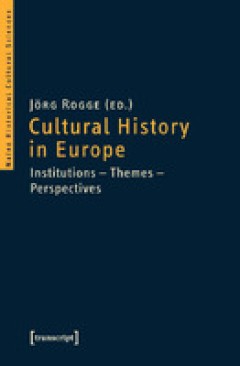
Cultural history in Europe : institutions - themes - perspectives
What is the current state of discussion in Cultural History? Which European institutions engage exclusively in Cultural History and which topics do they address? And how will Cultural History develop in the future? These and other questions are raised by European scholars in the discussion of Institutions, Themes and Perspectives of Cultural History in this volume. It provides a profound overvi…
- Edition
- -
- ISBN/ISSN
- 9783839417249
- Collation
- 259p.
- Series Title
- -
- Call Number
- 940.5 CUL r

The International Turn in American Studies
The volume is a contribution to the ongoing debate on the internationalization of American Studies. The essays by European, American and Latin American scholars provide critical evaluations of a wide range of concepts, including trans-national and post-national, international, trans-atlantic, trans-pacific, as well as hemispheric, inter-American and comparative American studies. Combining theor…
- Edition
- -
- ISBN/ISSN
- 9783653036572
- Collation
- 372 p. : ill
- Series Title
- -
- Call Number
- 973.071 MES t

Strategic imaginations : women and the gender of sovereignty in European culture
"What is the gender of political power ? What happens to the history of sovereignty when we reconsider it from a gender perspective ? Political sovereignty has been a major theme in European thought from the very beginning of intellectual reflection on community. Philosophy and political theory, historiography, theology, and literature and the arts have, often in dialogue with one another, soug…
- Edition
- -
- ISBN/ISSN
- 9789461663504
- Collation
- 310 p. : ill.
- Series Title
- -
- Call Number
- 321.0082 GIL s
Ageing with smartphones in Ireland : when life becomes craft
There are not many books about how people get younger. It doesn’t happen very often. But Ageing with Smartphones in Ireland documents a radical change in the experience of ageing. Based on two ethnographies, one within Dublin and the other from the Dublin region, the book shows that people, rather than seeing themselves as old, focus on crafting a new life in retirement. Our research particip…
- Edition
- -
- ISBN/ISSN
- 9781787359666
- Collation
- xiii, 232 p. : color, ill.
- Series Title
- -
- Call Number
- 303.4834084609415 GAR a
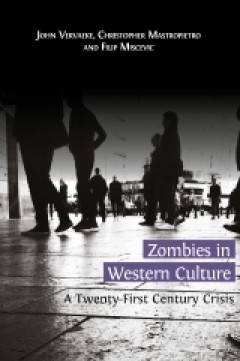
Zombies in western culture: a twenty-first century crisis
Why has the zombie become such a pervasive figure in twenty-first-century popular culture? John Vervaeke, Christopher Mastropietro and Filip Miscevic seek to answer this question by arguing that particular aspects of the zombie, common to a variety of media forms, reflect a crisis in modern Western culture. The authors examine the essential features of the zombie, including mindlessness, ugl…
- Edition
- -
- ISBN/ISSN
- 9781783743308
- Collation
- viii, 93 p. : ill. : ind. ; 24 cm
- Series Title
- -
- Call Number
- 398.21 VER z
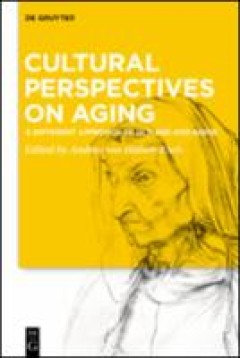
Cultural perspectives on aging : a different approach to old age and aging
The societal significance of old age and ageing are increasing due to demographic developments. Age(ing) is not only a biological and social fact, but also a cultural one. This book reveals the importance of cultural factors in order to build a framework for analyzing and understanding cultural constructions of ageing, bringing together scholarly discourses from the arts and humanities as well …
- Edition
- 3
- ISBN/ISSN
- 9783110683042
- Collation
- 172 p. : ill.
- Series Title
- -
- Call Number
- 900 HUL c

Touch in the time of corona : Reflections on love, care, and vulnerability in…
The COVID-19 pandemic has hooked us all into digital networks as our access to cities, work and social gatherings is restricted and reconfigured. Weaving together cultural history, aesthetics, and urban and digital studies, this short volume reflects on how the possibilities for touch, touching and being touched, both physically and affectively, are reconfigured by the pandemic.
- Edition
- -
- ISBN/ISSN
- 9783110744767
- Collation
- 131 p. : ill.
- Series Title
- -
- Call Number
- 362.1962414 STE t
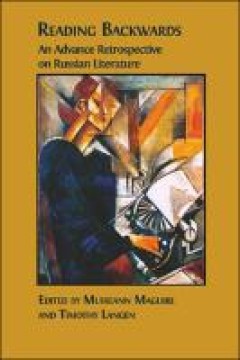
Reading backwards: an advance retrospective on Russian literature
"This edited volume employs the paradoxical notion of ‘anticipatory plagiarism’—developed in the 1960s by the ‘Oulipo’ group of French writers and thinkers—as a mode for reading Russian literature. Reversing established critical approaches to the canon and literary influence, its contributors ask us to consider how reading against linear chronologies can elicit fascinating new patte…
- Edition
- -
- ISBN/ISSN
- 9781800641211
- Collation
- 302 p.: colour, ill.
- Series Title
- -
- Call Number
- 891.709 MAG r

Disability in industrial Britain : a cultural and literary history of impairm…
Coalmining was a notoriously dangerous industry and many of its workers experienced injury and disease. However, the experiences of the many disabled people within Britain’s most dangerous industry have gone largely unrecognised by historians. This book examines the British coal industry through the lens of disability, using an interdisciplinary approach to examine the lives of disabled miner…
- Edition
- -
- ISBN/ISSN
- 9781526124326
- Collation
- 277 p. : ill.
- Series Title
- -
- Call Number
- 362 BOH d
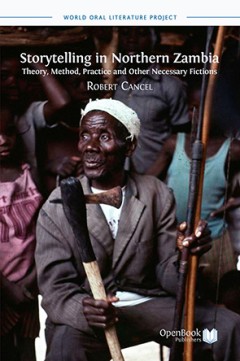
Storytelling in Northern Zambia: theory, method, practice and other necessary…
Storytelling plays an important part in the vibrant cultural life of Zambia and in many other communities across Africa. This innovative book provides a collection and analysis of oral narrative traditions as practiced by five Bemba-speaking ethnic groups in Zambia. The integration of newly digitalised audio and video recordings into the text enables the reader to encounter the storytellers the…
- Edition
- -
- ISBN/ISSN
- 9781909254619
- Collation
- xviii, 274 p. : ill. : ind. ; 24 cm
- Series Title
- -
- Call Number
- 808.543 CAN s
 Computer Science, Information & General Works
Computer Science, Information & General Works  Philosophy & Psychology
Philosophy & Psychology  Religion
Religion  Social Sciences
Social Sciences  Language
Language  Pure Science
Pure Science  Applied Sciences
Applied Sciences  Art & Recreation
Art & Recreation  Literature
Literature  History & Geography
History & Geography